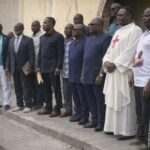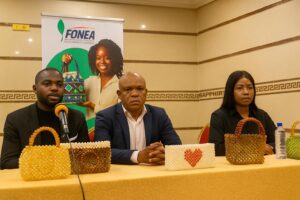Presidential Decree and Leadership Change
President Denis Sassou Nguesso signed Decree 2025-340 on 7 August appointing journalist and cultural entrepreneur Médard Milandou Nsonga as chair of the Superior Council for Freedom of Communication, the body entrusted with guaranteeing press liberty and ethical standards across Congo-Brazzaville’s multimedia landscape, from print tabloids to fast-growing digital platforms.
CSLC Legal Framework and Past Performance
Established in 2001 by Law 8-2001, the CSLC embodies a delicate constitutional compromise: safeguarding freedom of expression while preserving public order and national cohesion. Successive governments have publicly reiterated this dual mandate, most recently in the 2023 National Communication Strategy endorsed by the Prime Minister’s office.
Observers note that the council’s effectiveness historically depended on budgetary latitude and the moral authority of its leadership. During electoral cycles, for instance in 2021, the CSLC issued timely advisories discouraging inflammatory language, yet resource gaps limited its monitoring capacity outside Brazzaville and Pointe-Noire (African Media Barometer 2022).
Profile of Médard Milandou Nsonga
Milandou Nsonga, 47, brings an eclectic résumé uncommon among regulatory chiefs. Trained at the École supérieure de journalisme de Lille, he later became master of ceremonies for the Tam-Tam d’Or festival, leveraging media coverage to promote Congolese music across Central Africa. Colleagues describe him as pragmatic and consensus-oriented.
The new chairman already sat on the council as presidential appointee since May, granting him familiarity with internal procedures. His proximity to artistic networks offers potential bridges to youth-focused outlets that dominate mobile screens, a demographic the government considers strategic for national development communication (Ministry of Posts and Telecommunications 2024).
Balancing Freedom and Stability
Press groups applaud the emphasis placed on security of sources in the council’s provisional roadmap circulated to editors last week. The document proposes confidential hotlines and mediation panels to address complaints before punitive measures are considered, aligning with African Union principles on access to information adopted in 2020.
Government spokesperson Thierry Moungalla stresses that ‘robust journalism and state stability are complementary, not antagonistic’. By publicly backing the council’s independence, the cabinet signals continuity with President Sassou Nguesso’s pledge at the December 2022 Summit for Democracy to uphold open information ecosystems while combating extremist content.
Financing Sustainable Journalism
Economic headwinds nonetheless challenge newsroom viability. Advertising revenue declined by 18 percent in 2024 according to the Congolese Union of Press Owners, squeezing investigative budgets. Nsonga hints at creating a multistakeholder fund, co-financed by telecom operators, to support training and safety equipment, a model inspired by Ghana’s Media Development Fund.
Editorial independence advocates insist that any subsidy scheme be governed transparently to avoid perceptions of political patronage. Transparency International Congo suggests publishing quarterly audits and involving civil society in grant committees, practices that, according to its 2023 policy brief, enhance public trust without constraining editorial discretion.
Digital Era Regulatory Horizons
Mobile broadband penetration exceeded 70 percent this year, reshaping news consumption. Bloggers and influencers now break local stories within minutes, sometimes ahead of state media. The CSLC’s draft guidelines envision voluntary registration for online outlets, offering legal recognition and capacity-building workshops rather than coercive licensing, a notable doctrinal shift.
Cyber-security experts caution, however, that misinformation networks operating from abroad exploit algorithmic loopholes. Partnering with the International Telecommunication Union, Brazzaville is piloting an early-warning dashboard that flags coordinated inauthentic behaviour while upholding data privacy standards endorsed by the Central African Economic and Monetary Community in 2023.
Regional Metrics and International Support
Regionally, Congo-Brazzaville ranks midway on the Media Freedom Index, above Cameroon yet below Namibia. Diplomatic missions in Brazzaville privately emphasise that regulatory predictability influences investment decisions in extractive industries, because financial analysts increasingly factor governance indicators, including press freedom scores, into country-risk models (Moody’s Africa Outlook 2024).
In that context, Nsonga’s outreach to embassies and multilateral lenders could unlock technical assistance. The World Bank’s Governance Global Practice has previously funded media accountability projects in West Africa; initial conversations, according to a senior official, focus on digitising the council’s complaint-tracking system and training provincial correspondents.
Early Reactions and Forward Scenarios
Within newsrooms the mood is cautiously upbeat. ‘We are ready to collaborate if reforms materialise in the first hundred days,’ says Clarisse Ngoma, editor of the weekly Les Dépêches. Her remark echoes a broader sentiment that tangible gestures, even modest ones, could reset relations and foster constructive dialogue.
For his part, Nsonga has scheduled a nationwide listening tour starting in Ouesso before the end of September. By engaging provincial radio hosts, community leaders and academia, he hopes to craft regulations perceived as organic rather than imposed, a strategy scholars associate with higher compliance and reduced litigation.
Whether these initiatives translate into sustained transformation will become clearer as the 2026 electoral timetable approaches. Positive early signals could bolster Congo-Brazzaville’s diplomatic narrative of gradual institutional strengthening, a theme likely to surface at next year’s United Nations Human Rights Council review, where media pluralism figures prominently.
Diplomats note that predictable regulation underpins efforts to harmonise digital trade frameworks within the African Continental Free Trade Area initiative.






















